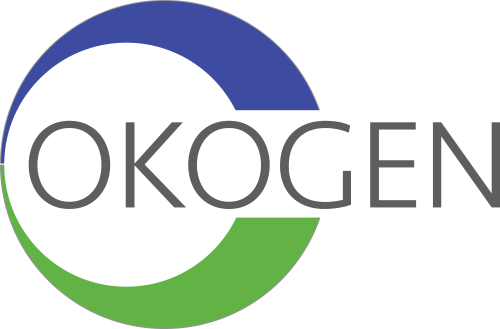Okogen innovates a novel treatment for a common and often serious ophthalmic condition with no approved therapies.
Hear the phrase “pink eye” and more than likely you immediately picture red, runny, painful eyes. You might even feel your own eyes starting to itch. Pink eye, also known as conjunctivitis, is common and often highly contagious. People generally think of it as a relatively benign inconvenience that periodically sweeps through day care centers, summer camps and college dormitories. However, it is a serious ophthalmic condition, most often caused by a virus, with potential long-term negative effects that impact millions of people worldwide and accounts for 1% of all U.S. visits to primary care doctors. Okogen is focused on developing innovative ophthalmic therapeutics, with an initial focus on OKG-0301 for the treatment of viral conjunctivitis.
There are 30 million cases of acute conjunctivitis annually worldwide, including 6 million cases each year in the United States alone. Up to 80% of all conjunctivitis are viral with 90% resulting from a single viral family, known as adenovirus. Viral conjunctivitis results in moderate to severe inflammation of the conjunctiva, the mucous membrane that covers the white part of the front of the eye and lines the inside of the eyelids. Corneal opacity occurs in 20-50% of viral conjunctivitis cases, and can lead to scarring or clouding of the cornea, which may result in vision loss. Significantly, viral conjunctivitis may result in long-term visual impairment and premature chronic dry eye. There are no approved therapies for the disease.
Although antibiotics are completely ineffective against viral conjunctivitis, physicians often prescribe them to patients desperately seeking relief from eye pain and the other signs and symptoms of conjunctivitis. Unwarranted use of antibiotics is a key factor in the development of multi-drug resistant bacterial infections and results in high costs to patients and healthcare systems for a therapy that will not provide benefit. Moreover, use of antibiotics and other topical medications can delay presentation to a trained ophthalmologist, which may lead to negative outcomes, including vision impairment.
OKG-0301 has a novel mechanism of action, preferentially localizing within virally infected cells, inhibiting viral replication and reducing pro-inflammatory signaling. The drug has an extended duration of action compared with therapies that remain outside the cell, which are rapidly cleared each time the eye blinks. Preclinical studies demonstrate that OKG-0301 significantly accelerates viral clearance and reduces the period of viral shedding, which is important for reducing the spread of infection both from one eye to the other and from person to person. If effective in human clinical trials, OKG-0301 would be a first-in-class therapy to enable early intervention in patients with viral conjunctivitis. Such intervention is essential for protecting eye health and limiting the spread of conjunctivitis.
OKG-0301 is an ophthalmic formulation of ranpirnase, a bioactive therapeutic that has been evaluated as an intravenous formulation through late stage oncology clinical trials in more than 800 patients. Ranpirnase is a member of the RNase A family of proteins, which has evolved throughout nature as a defense mechanism against infectious agents. Ranpirnase was originally purified from the eggs of the Northern Leopard Frog (Rana pipiens), where it works to prevent viral infection of the egg and developing frog embryo. It also can be made recombinantly. Further, a human form of RNase A is naturally present in tear film, where it helps to prevent infection.
In vitro data demonstrate that ranpirnase is effective against more than 15 types of virus, including adenovirus and herpes simplex virus and in vivo studies of ocular adenoviral infection show a dose response profile for ranpirnase. Additionally, clinical data demonstrate that ranpirnase is effective in resolving dermal infections in more than 50 patients with human papillomavirus.
In February of this year Okogen completed a Series A financing that raised $10 million to advance the development of OKG-0301 as a potential therapy for viral conjunctivitis. We expect to initiate Phase 2 trials of OKG-0301 in Australia and the United States in late 2018 and the second quarter of 2020, respectively.
As we work to make OKG-0301 a first-in-class therapy for pink eye, it’s important for anyone who develops the condition to take steps to protect their eye health. Remember that antibiotics are not the answer for a condition that results from a viral infection. While there are no approved therapies for pink eye, an ophthalmologist can help develop a management plan that can help mitigate discomfort and protect your eye health. Thinking clearly about pink eye today will help ensure that you see clearly for years to come.

